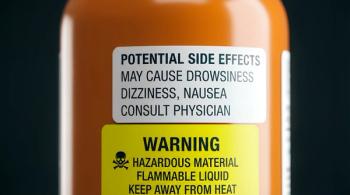
Sacituzumab Govitecan Granted Accelerated Approval for Advanced Urothelial Cancer
Sacituzumab govitecan (Trodelvy) approved for patients with locally advanced or metastatic urothelial cancer who previously received a platinum-containing chemotherapy and either a PD-1 or PD-L1 inhibitor.
The FDA has granted an accelerated approval to sacituzumab govitecan (Trodelvy) for the treatment of patients with locally advanced or metastatic urothelial cancer who previously received a platinum-containing chemotherapy and either a programmed cell death protein 1 or programmed death-ligand 1 inhibitor.1
The approval was based on data from the TROPHY-U-01 trial (IMMU-132-06; NCT03547973), which showed sacituzumab govitecan generated an objective response rate (ORR) of 27.7% (95% CI, 19.6-36.9), with a 5.4% complete response rate and a 22.3% partial response rate. The median duration of response (DOR) achieved with sacituzumab govitecan was 7.2 months (95% CI, 4.7-8.6; range 1.4+, 13.7).
TROPHY-U-01 evaluated sacituzumab govitecan in patients with metastatic urothelial carcinoma who progressed on previous platinum-based and checkpoint inhibitors (cohort 1; n = 100); patients with metastatic urothelial carcinoma who were not eligible for platinum-based therapy and who had progressed following prior checkpoint inhibitors (cohort 2; n = 40); and patients with metastatic urothelial carcinoma naïve to checkpoint inhibitors who had progressed on prior platinum-based treatment (cohort 3; n = up to 61 patients).2
The 3 cohorts were administered 10 mg/kg of sacituzumab govitecan on days 1 and 8 every 21 days. Treatment was administered until loss of clinical benefit or intolerable toxicity. The primary objective was ORR by central review, whereas the secondary objectives were safety/tolerability, DOR, progression-free survival (PFS), and overall survival (OS).
Of 113 patients in cohort 1, the median age was 66 years (range, 33-90) and 23% of patients were 75 years of age or older. The majority of patients were White (74%) and had an ECOG performance status of 1 (72%), with 28% having visceral metastasis in the liver with a median number of prior regimens received of 3.0 (range, 1-8).
In cohort 1, the median PFS with sacituzumab govitecan was 5.4 months (95% CI, 3.5-6.9), whereas the median OS was 10.5 months (95% CI, 8.2-12.3).
The most frequently reported adverse events (AEs) reported in more than 25% of patients administered sacituzumab govitecan included neutropenia, nausea, diarrhea, fatigue, alopecia, anemia, vomiting, constipation, decreased appetite, rash, and abdominal pain.
In cohort 1, 6% of patients (n = 7) discontinued treatment because of treatment-related AEs, 3 of whom discontinued because of neutropenia or its complications. Meanwhile, 30% of patients required management with granulocyte colony–stimulating factor. One treatment-related death was reported because of sepsis resulting from febrile neutropenia.
The indication is approved under accelerated approval based on tumor response rate and DOR. Continued approval is contingent on verification of clinical benefit in the confirmatory phase 3 TROPiCS-04 trial (NCT04527991).
References
- FDA grants accelerated approval to sacituzumab govitecan for advanced urothelial cancer. News release. FDA. April 13, 2021. Accessed April 14, 2021. https://www.fda.gov/drugs/resources-information-approved-drugs/fda-grants-accelerated-approval-sacituzumab-govitecan-advanced-urothelial-cancer
Newsletter
Stay informed on drug updates, treatment guidelines, and pharmacy practice trends—subscribe to Pharmacy Times for weekly clinical insights.

































